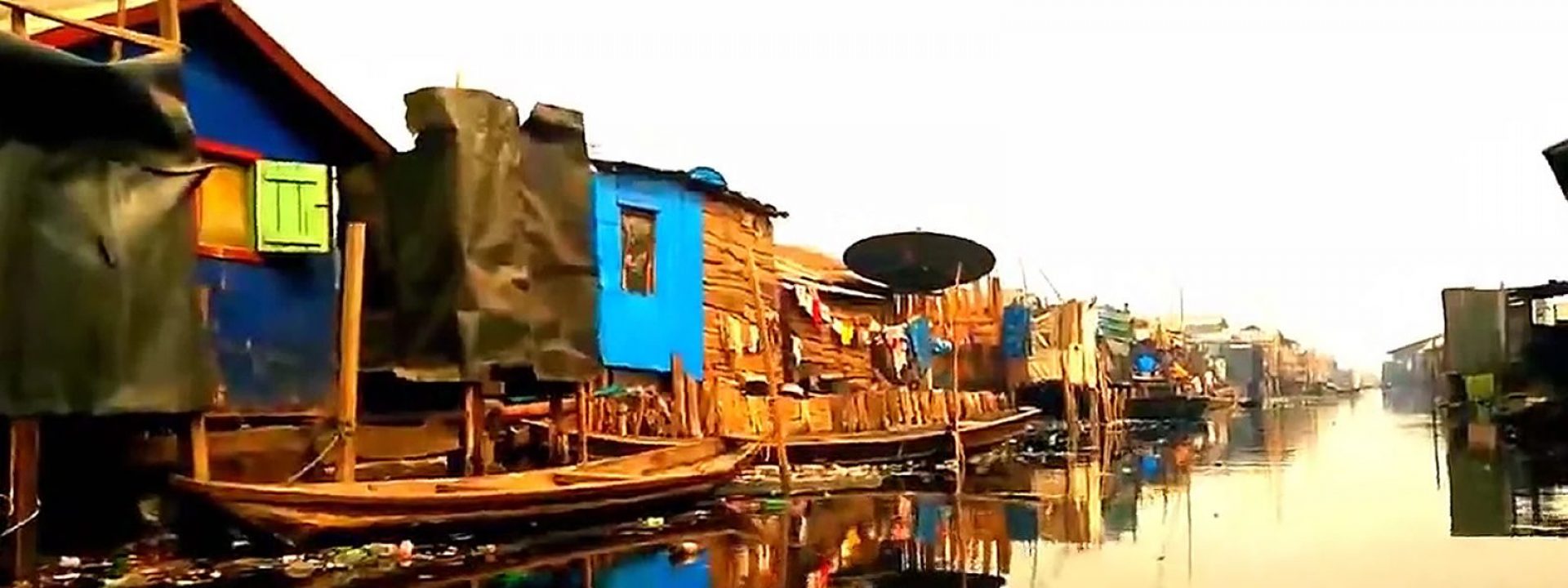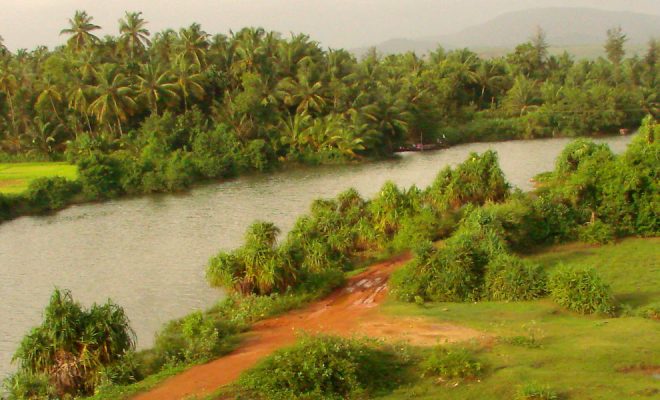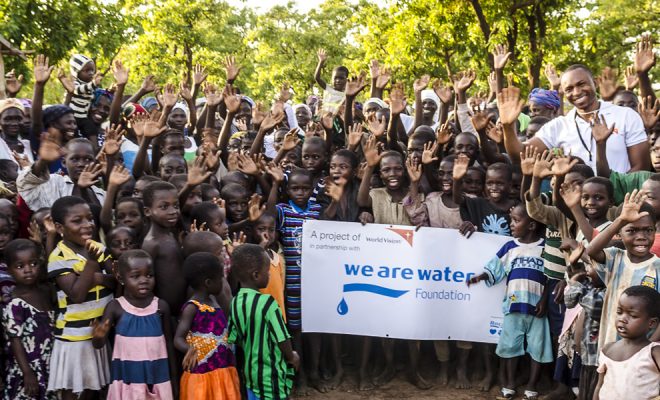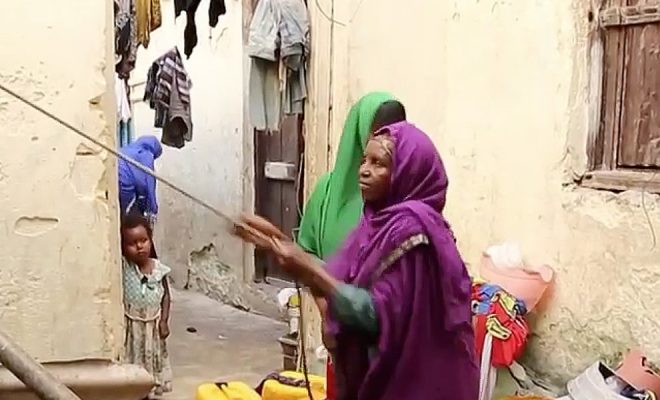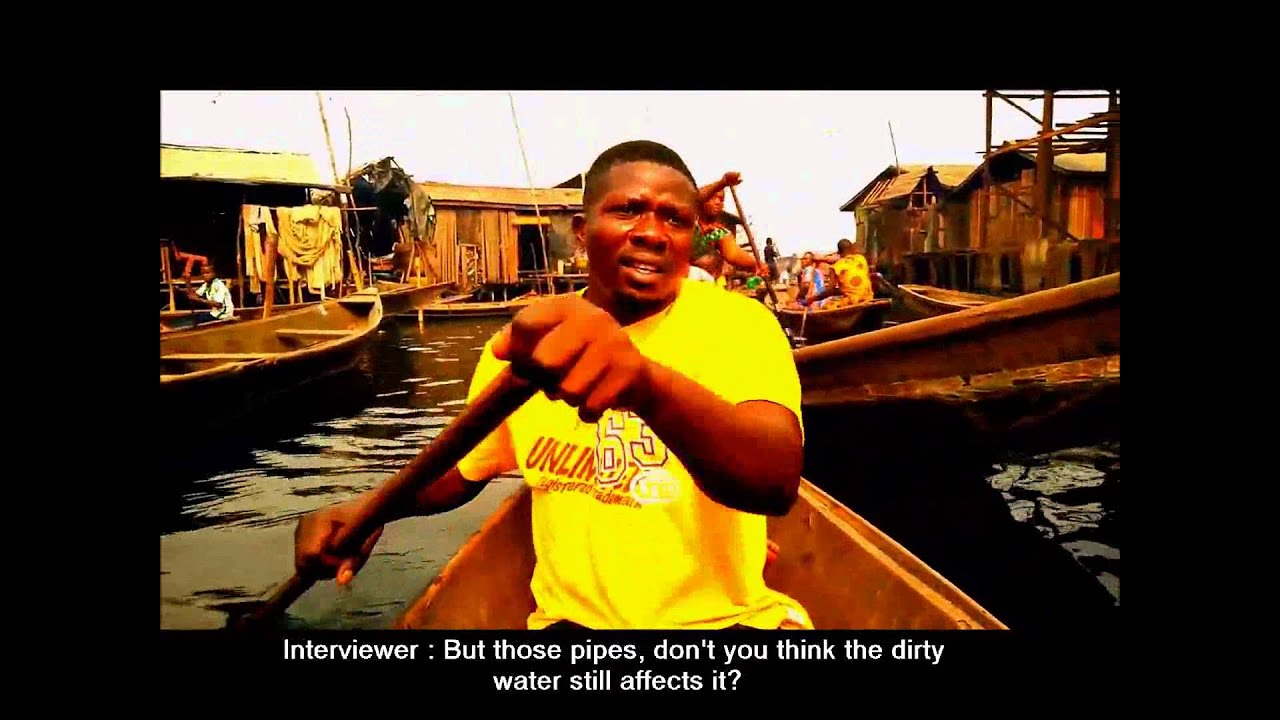
Black Water by 2 Spies Productions (Nigeria), finalist of the We Art Water Film Festival 3. Category: Micro-Documentary
Makoko is a marginal suburb in Lagos, Nigeria´s former capital city, which is nowadays the second most populated city in Africa with nearly 25 million inhabitants. Makoko means “fishermen´s village” which is exactly what its first inhabitants were about 150 years ago. In the past their homes, built on pillars placed at the bottom of the shallow salt lake, had a special beauty that made the neighbourhood known as the “Nigerian Venice”.
But nobody fishes in Makoko anymore. Today, sewage spreads out below the houses and their inhabitants live in one of the unhealthiest marginal neighborhoods in the world. For decades, Makoko residents have had no access to basic sanitation or electricity. There are communal latrines, but they need to be shared by around 15 households, and sewage, kitchen residues and all kinds of materials end up in the water below their homes. Drinking water reaches them via pipes paid by the own residents which make up a community of 85,000 neighbors, according to the last census in 2012. (A figure that is not reliable: see The water invisibles).
Currently, malaria, respiratory diseases and malnutrition are endemic problems in Makoko. The community is at risk due to the eviction promoted by the Nigerian government, which intends to build an extension of the luxurious neighborhood of Victoria Island and to clean the image of the city.
Climate change is added to this complicated situation, making floods more violent every year and testing the resilience of the population to a creeping impoverishment.
Floating hope
In view of the lack of determination shown by the government to alleviate Makoko´s problems, some projects have arisen among Nigerian urban planners and architects that have brought a glimmer of hope to the suburb. The most important one is the Makoko Floating School by Kunlé Adeyemi, a project supported by the Fundación Heinrich Böll and United Nations.
It is a floating structure with a prism-like shape that is entirely autonomous: it collects rain water, generates solar energy and recycles waste water, and it is also immune to the rise in the water level due to floods. Adeyemi has designed the school as a building that may be replicated, so that it will be possible to develop similar areas to Makoko, empowering its neighbors to face the water and energy needs and avoiding residual pollution. The Nigerian architect also promotes a broader research project, the Africa Water Cities, with the aim of fighting the effects of climate change related to floods and the rise of the sea level in African cities.
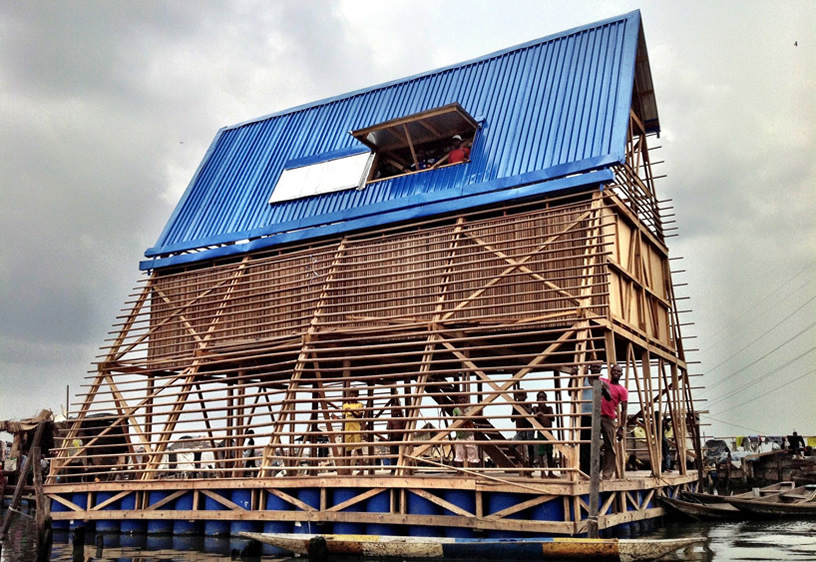
Makoko Floating School. © NLÉ/Forgemind ArchiMedia


